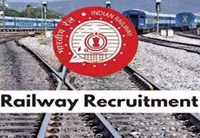
PR / IH Desk
MALIGAON, June 20 2020: The Ministry of Railways has successfully concluded, what can be called as one of the world’s largest recruitment exercise, for filling up critical safety and operational posts and has reached its completion stage.
Railway Recruitment Boards (RRBs) invited online applications against Centralized Employment Notification (CEN) No. 01/2018 from 03.02.2018 to 31.03.2018 for a total 64,371 combined vacancies of Assistant Loco Pilots (ALPs) & Technicians. A total of 47, 45,176 online applications were received. The scheme of selection consisted of 3 stages computer based tests followed by medical examination (which is one of the stringent medical examinations considering the level of distant vision/colour vision and alertness required from a Loco Pilot) and document verification of short listed candidates.
Panel of selected candidates has been approved for 56,378 Candidates out of 64371 vacancies. Appointment letters have been issued to 40,420 candidates (22223 ALPs, 18197 Technicians). Training of newly recruited 19,120 candidates (10123 Assistant Loco Pilots, 8997 Technicians) to resume as soon as COVID related measures ease out. Training process take 17 weeks for ALPs, 06 months for Technicians.
All newly recruited employees will be given appointment in Railway as per procedure in a phased manner. The training of fresh appointees is required because Railway is an operational department and safety of train operations is paramount. Training includes class room training followed by field training followed by Testing of the competence before deployment on working post. Since training is given batch wise considering the capacity constraints of class room, hostel, library, instructors, etc. It has to be done in a phased manner by optimum utilization of training resources. Presently due to the CORONA outbreak, all form of training has been suspended to observe social distancing norms and to restrict the pandemics.
The recruitment exercise was a 3 Stage process. 1st stage Computer Based Test was successfully conducted on 11 days from 09.08.2018 to 04.09.2018 in 33 shifts at 424 centres with record attendance of nearly 77% i.e. more than 36 lakh candidates appeared in the first stage examination. 2nd stage Computer Based Test was successfully conducted for 13, 00,869 candidates on 03 days from 21.01.2019 to 23.01.2019 in multiple shifts. Computer Based Aptitude Test (CBAT) required to assess the alertness required from a loco pilot for approximately 2, 22,360 candidates was successfully conducted on 10.05.2019 and 21.05.2019. After that document Verification and Medical examination started from 16.06.2019 to 20.08.2019 for about 90,000 candidates (including 50% standby candidates). It can be mentioned that the medical examination of ALP is one of the stringent in the industry as there is no margin of error available to a loco pilot driving a train. Panels supplied to Zonal Railways from September 2019 to February 2020. As CBT was common to both ALP and Technician, the technician result was declared later for those who could not qualify for ALP in Computer Based Aptitude Test (CBAT).
Besides the recruitment of ALPs & technicians, Railway Recruitment Boards (RRBs) also invited online applications for a total 35,208 combined vacancies of Non-Technical Popular Category (NTPC – Graduate & under Graduate level) post. A total of 1, 26, 30,885 (i.e. more than 1.25 Crore) online applications were received. However the examination process preparation was interrupted due to unexpected outbreak of Covid-19 pandemic. Indian Railways is formulating a viable strategy to conduct massive examination of 1.25 crore applicants and scheduling of all the processes etc while observing all norms in Covid-19 scenario.
RRBs follow the practice of direct and instantaneous communication with candidates through regular updates on web-sites and individual SMSs and emails, whenever required. Candidates are advised to refer to these official communications only and not to be misguided by false propaganda and rumours being circulated on social media, many of which are aimed at misleading the genuine candidates and adversely affecting their preparation for examination.